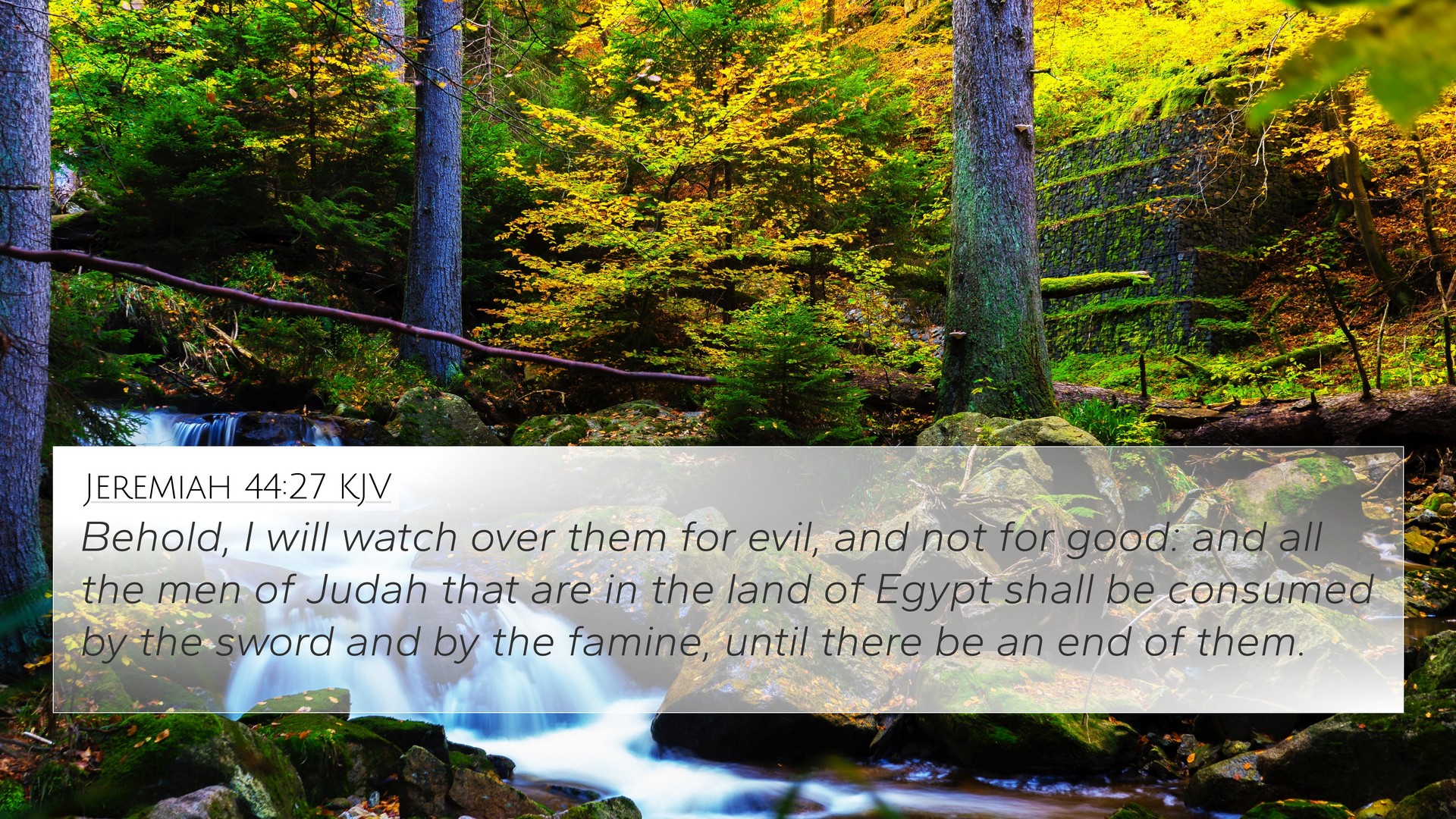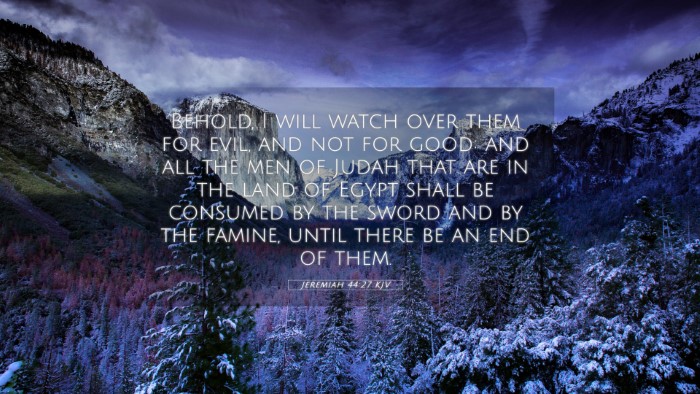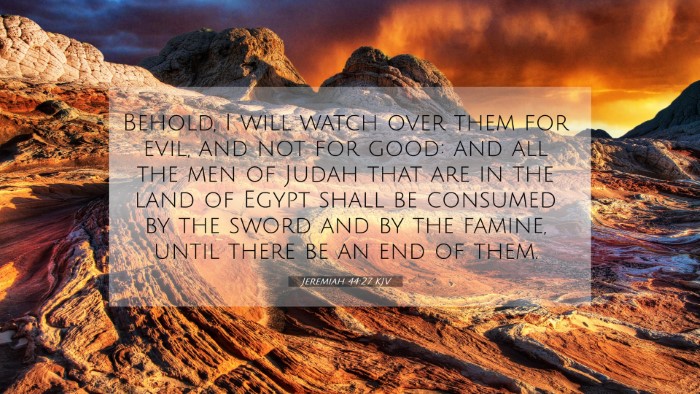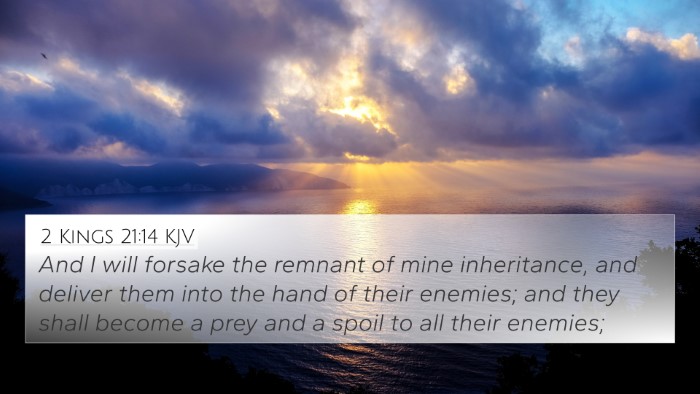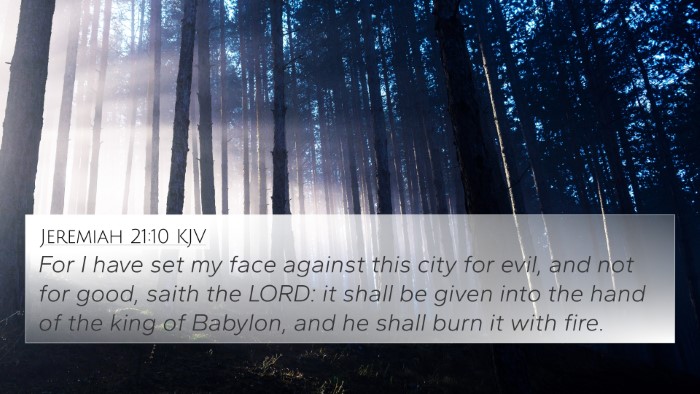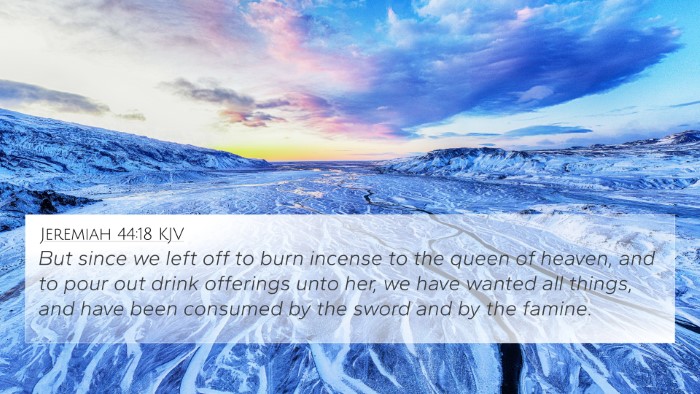Understanding Jeremiah 44:27
Jeremiah 44:27 states: "Behold, I watch over them for evil and not for good; and all the men of Judah that are in the land of Egypt shall be consumed by the sword and by the famine, until there be an end of them."
Summary of Jeremiah 44:27
This verse reflects God's judgment upon the people of Judah who had turned to Egypt for help instead of relying on Him. The divine watchfulness intended for their protection has turned into supervision for their destruction due to their disobedience and idolatry.
Insights from Public Domain Commentaries
-
Matthew Henry:
Henry emphasizes the severity of God's judgment, highlighting that His vigilance over Judah has shifted to a watchful eye in anticipation of their demise. He notes that this is in response to their rejection of divine guidance and their choice to seek refuge in a foreign land.
-
Albert Barnes:
Barnes interprets this verse as a declaration of impending doom. He argues that God’s justice requires consequence for their actions. The reference to "sword and famine" symbolizes complete destruction, both physically and spiritually, signaling the end of those who continue to abandon God.
-
Adam Clarke:
Clarke ties this verse into a larger narrative of disobedience, noting that the people’s decision to settle in Egypt signifies a lack of faith. He explains that God's allegiance is conditional on their fidelity to Him, and their disloyalty results in divine retribution.
Key Themes and Connections
This verse is rich in themes such as:
- Judgment and Mercy: God's dual nature of being merciful yet just.
- Faith and Disobedience: The consequences of turning away from God's commandments.
- Idolatry and Apostasy: The dangers of seeking security in foreign gods.
Bible Cross-References
Several Bible verses connect with Jeremiah 44:27, helping illuminate its meaning and implications:
- Deuteronomy 30:17-18: A warning against turning away from God's commands.
- Isaiah 31:1: A reminder not to rely on Egypt for help, but to trust in God.
- Jeremiah 2:13: God expressing sorrow over Israel's forsaking Him for broken cisterns.
- Jeremiah 7:24-26: The consequences of not heeding God's voice exemplified.
- Ezekiel 14:21: A reflection on how God's judgment will come not just in one form, but through diverse calamities.
- Lamentations 3:34-36: God's sovereignty in judgment, highlighting His authority over affairs.
- Luke 13:3: "Unless you repent, you will all likewise perish," showing the necessity of repentance.
Thematic Bible Verse Connections
When studying Jeremiah 44:27, it can be beneficial to explore broader theological connections:
- Cross-referencing Biblical texts: Understanding how God’s covenant is consistently upheld throughout Scripture.
- Inter-Biblical dialogue: Discussing how the actions of ancient Israel mirror those of contemporary believers.
- Comparative Bible verse analysis: Analyzing how themes from Jeremiah resonate in the New Testament, particularly in the teachings of Jesus regarding faithfulness to God.
Conclusion
Jeremiah 44:27 serves as a stark warning about the consequences of abandoning faith and seeking solace in worldly powers. Utilizing tools for Bible cross-referencing can enhance our understanding by illuminating connections between various verses that share similar themes of judgment, faith, and divine sovereignty. In studying these connections, believers can gain a deeper appreciation of God's unchanging nature and the importance of steadfastness in faith.
